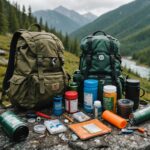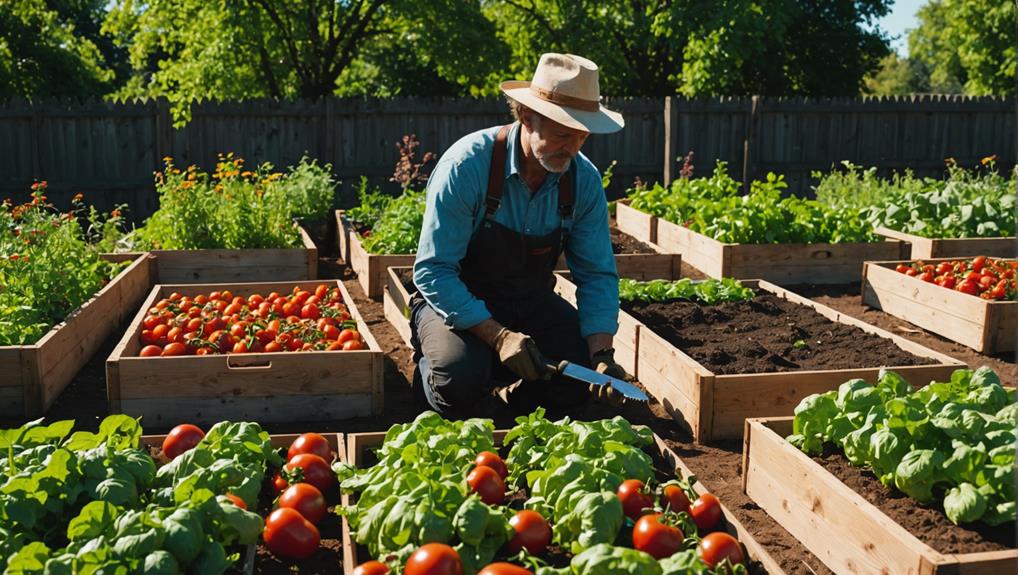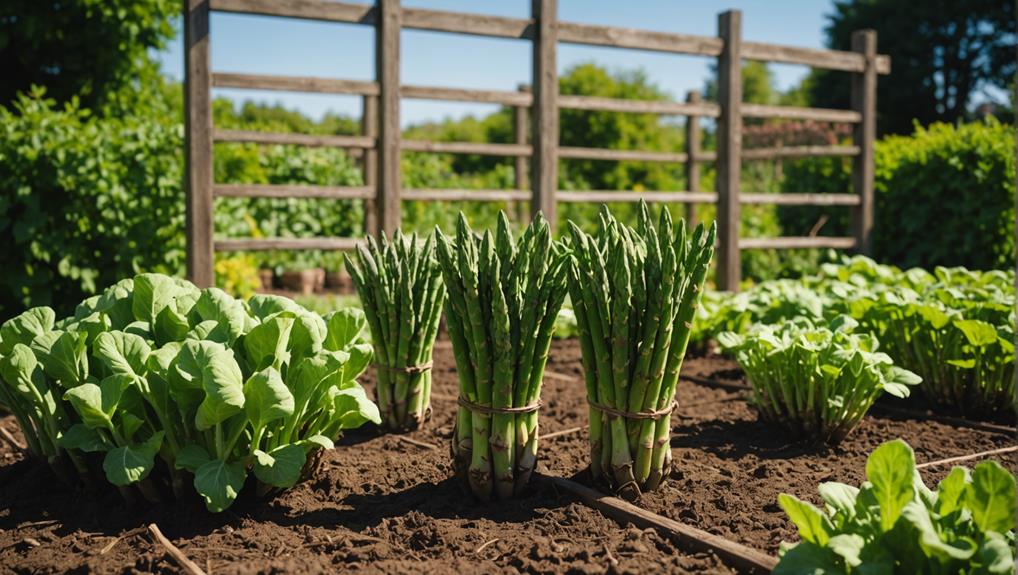As an Amazon Associate I earn from qualifying purchases.
Do you ever find yourself wondering how you would fare if you were suddenly thrust into a survival situation in the great outdoors? Perhaps you’ve never been camping or hiking before, or maybe you’re an experienced outdoors enthusiast looking to brush up on your knowledge. Either way, mastering outdoor survival skills is an essential ability that can potentially save your life in a variety of situations. In this article, I’ll be diving into the world of outdoor survival skills, providing you with valuable information and tips that will help you navigate the wilderness with confidence.
When it comes to mastering outdoor survival skills, there’s a wide range of essential knowledge to acquire. From building a shelter to finding clean drinking water, knowing how to navigate using natural landmarks to identifying edible plants, the skills required for surviving in the wilderness can seem overwhelming at first. However, by breaking them down into bite-sized pieces, you’ll be able to approach each skill with a sense of excitement and curiosity. In this article, I’ll be delving into each of these topics, offering detailed explanations and step-by-step instructions to help you develop a solid foundation in outdoor survival skills. So whether you’re planning a camping trip or simply want to be prepared for any unexpected twist that Mother Nature might throw your way, grab a cup of tea and get ready to embark on a journey of outdoor survival mastery.

Understanding the Importance of Outdoor Survival Skills
The significance of learning outdoor survival skills
In today’s modern world, it’s easy to forget the importance of knowing how to survive in the wilderness. With technology at our fingertips and the convenience of modern amenities, the need for outdoor survival skills may seem unnecessary. However, mastering outdoor survival skills is not only essential for adventurers and camping enthusiasts but for everyone.
How outdoor survival skills can save lives
Knowing how to navigate through unfamiliar terrain, build and maintain shelter, start a fire, find and purify water, procure food, administer first aid, and stay mentally strong can mean the difference between life and death in an emergency situation. Outdoor survival skills equip you with the knowledge and tools needed to overcome unforeseen challenges and ensure your safety in the wilderness.
Preparation for unexpected situations in the wilderness
One of the key aspects of outdoor survival skills is being prepared for unexpected situations. Nature is unpredictable, and even the most experienced individuals can find themselves facing difficult circumstances. By mastering outdoor survival skills, you are better prepared mentally and physically to handle any situation that may arise. Whether you find yourself lost in the wilderness, injured on a hike, or stranded due to inclement weather, having the necessary skills can help you find your way back to safety.
Essential Navigation Techniques
Understanding and using compass navigation
Navigating through unfamiliar territory can be a daunting task, but with the ability to use a compass, you can effectively determine your direction and find your way back to civilization. Learning how to read a compass and understand the basic principles of navigation is an essential outdoor survival skill. By being able to navigate using a compass, you can confidently explore new areas without the fear of getting lost.
Utilizing maps and topographic features for orientation
In addition to using a compass, understanding how to read and interpret maps is crucial for successful navigation. Maps provide valuable information about the terrain, including topographic features, which can help you determine your location and plan your route. By familiarizing yourself with map reading techniques, you can effectively navigate through different types of terrain and reach your desired destination.
Utilizing natural signs and landmarks for direction
Nature provides a multitude of signs and landmarks that can be used as navigational aids. By observing your surroundings and recognizing natural signs, such as the position of the sun, the flow of water, or the formation of the land, you can determine your direction and navigate with confidence. Mastering the art of using natural signs and landmarks can greatly enhance your navigation skills and improve your chances of survival in the wilderness.
Building and Maintaining Shelter
Types of emergency shelters in various environments
When faced with an unexpected stay in the wilderness, having the knowledge to build an emergency shelter is essential for survival. Different environments require different types of shelters to provide protection from the elements. Whether it’s a lean-to, a debris shelter, or a snow cave, understanding how to construct a suitable shelter based on your surroundings is crucial. Mastering the skills needed to build various types of emergency shelters will ensure your comfort and safety while awaiting rescue or planning your way back to civilization.
Identifying suitable locations for shelter construction
Apart from knowing how to build shelters, it’s equally important to identify suitable locations for their construction. Factors such as terrain, proximity to water sources, wind direction, and natural barriers should be considered when selecting a location for your shelter. By carefully assessing the environment, you can find an area that provides protection, safety, and access to essential resources.
Essential skills for constructing and maintaining shelter
Building a shelter is only the first step. It’s equally important to know how to maintain it, especially during prolonged stays in the wilderness. Understanding techniques for repairing and reinforcing shelters and keeping them dry and secure can make a significant difference in your overall comfort and well-being. By mastering these essential skills, you can ensure that your shelter remains a safe haven throughout your time in the wild.
Mastering Fire Starting Methods
Essential fire starting tools and resources
Fire is not only essential for warmth but also for cooking food, purifying water, and signaling for help. Therefore, knowing how to start a fire is a fundamental skill for outdoor survival. Familiarize yourself with the various tools and resources, such as fire starters, matches, lighters, and natural materials, that can be used to ignite a fire. By having a solid understanding of fire starting methods, you can confidently create and maintain a fire in different weather conditions.
Techniques for starting a fire in different weather conditions
Weather conditions can greatly impact your ability to start a fire. Whether it’s wet and rainy or cold and windy, knowing the proper techniques for starting a fire in different weather conditions is crucial. With the right knowledge and skills, you can adapt your fire starting methods to overcome the challenges posed by adverse weather. This mastery of fire starting will greatly contribute to your overall survival in the wilderness.
Fire safety and maintenance while in the wilderness
While fire is a valuable survival tool, it must be handled with caution. Understanding fire safety measures, such as clearing the area around the fire, controlling its size, and properly extinguishing it, is essential to prevent accidents and avoid wildfires. Additionally, knowing how to properly maintain a fire, including adding fuel and managing its intensity, ensures that you can rely on it for your various survival needs.

Finding and Purifying Water
Identifying potential water sources in the wild
Water is vital for survival, and being able to locate potential water sources in the wild is crucial. By understanding how to identify signs of water, such as vegetation, animal tracks, and topographic features, you can increase your chances of finding a reliable water source. Mastering the skill of locating water will ensure that you can stay hydrated and sustain yourself in even the most challenging environments.
Techniques for collecting and filtering water
Once you have identified a water source, it’s important to know how to collect and filter the water to ensure its safety for consumption. Various techniques, such as using containers, natural filters, and purification tablets, can be employed to remove impurities and pathogens from the water. By mastering these techniques, you can reduce the risk of waterborne illnesses and maintain your hydration levels.
Methods of water purification to ensure safety
In situations where the water source is questionable, such as in wilderness survival scenarios, it’s crucial to know how to purify the water. Boiling, chemical treatment, and ultraviolet light are common methods of water purification. Understanding which method to use and the necessary steps to ensure the water is safe for drinking is an important skill to possess. By mastering water purification techniques, you can protect yourself from harmful bacteria and parasites, safeguarding your health and well-being.
Procuring Food in the Wilderness
Identifying edible plants and wild foraging
When faced with a survival situation in the wilderness, finding food becomes paramount. While hunting and trapping can be effective methods, it’s equally important to know how to identify edible plants and engage in wild foraging to supplement your food supply. Familiarize yourself with edible plant species and learn to forage for wild berries, nuts, and other natural food sources. Mastering the skill of procuring food in the wilderness can provide you with sustenance when other options are limited.
Hunting and trapping techniques for survival
In addition to foraging, hunting and trapping can provide a significant and sustainable food source in the wilderness. Developing skills such as tracking animals, setting traps, and using primitive hunting tools can greatly increase your chances of successfully procuring food. By mastering these techniques, you can harness the resources available in the wild and ensure your nutritional needs are met.
Preparing and cooking wild game and plants
Successfully procuring wild game and edible plants is only part of the equation. Knowing how to properly prepare and cook them is equally important. Techniques such as cleaning and butchering animals, identifying and preparing edible parts of plants, and cooking methods suited for the wilderness are crucial skills to have. Mastering these skills ensures that the food you procure is safe to eat and maximizes the nutritional value.
First Aid and Medical Emergency Preparedness
Basic first aid skills for outdoor emergencies
Accidents and injuries can happen in any outdoor environment, making basic first aid skills critical for survival. Knowing how to assess wounds, administer CPR, dress wounds, splint fractures, and manage common outdoor injuries can be lifesaving. By mastering these skills, you can provide immediate care to yourself and others in a wilderness emergency until professional medical help arrives.
Creating a wilderness first aid kit
Having a well-stocked first aid kit tailored specifically for outdoor emergencies is essential. Knowing what supplies to include, such as bandages, antiseptic ointments, pain relievers, and essentials for treating medical emergencies, is crucial. By mastering the art of creating a wilderness first aid kit, you can be prepared for any unexpected medical situation in the wilderness.
Handling common medical emergencies in the wild
In addition to basic first aid skills, understanding how to handle common medical emergencies that may occur in the wild, such as dehydration, heat stroke, hypothermia, and insect bites, is vital. By recognizing the signs and symptoms and knowing how to administer appropriate treatment, you can effectively manage these emergencies and prevent further complications. Mastering the skills needed to handle medical emergencies in the wilderness ensures your own safety and the safety of those around you.
Survival Mindset and Psychological Preparedness
Developing a resilient survival mindset
Survival situations can be mentally and emotionally challenging. Developing a resilient survival mindset is crucial for maintaining focus, making sound decisions, and staying positive in the face of adversity. By cultivating mental toughness and learning coping mechanisms, you can overcome stress, fear, and anxiety, increasing your chances of survival in the wilderness.
Coping with stress and anxiety in survival situations
Survival situations often involve high levels of stress and anxiety. Being able to effectively manage these emotions is essential for maintaining clarity and making rational decisions. Learning techniques such as deep breathing, meditation, and positive visualization can help you cope with stress and anxiety, allowing you to better navigate through challenging circumstances.
Maintaining focus and positive thinking
In the wilderness, it’s easy to become overwhelmed by the harshness of the environment and the challenges that come with survival. However, maintaining focus and a positive mindset is vital for keeping motivation and perseverance intact. By mastering the art of maintaining focus and positive thinking, you can stay determined, adapt to changing situations, and ensure your survival.
Navigating Different Terrains and Climates
Survival strategies for deserts, forests, mountains, and more
Different terrains present unique challenges and require specific survival strategies. Whether you find yourself stranded in a desert, a dense forest, or a mountainous region, understanding the specific needs and strategies for each environment is critical. By mastering survival strategies tailored to different terrains and climates, you can adapt and thrive in any situation.
Climate-specific challenges and considerations
Climate plays a significant role in our ability to survive in the wilderness. Extreme temperatures, humidity, precipitation, and other weather conditions can pose challenges and impact our physical well-being. Understanding climate-specific challenges and considerations, such as preventing heatstroke in a desert or avoiding hypothermia in a cold climate, is essential for survival. By mastering the knowledge and skills associated with different climates, you can protect yourself and increase your chances of a successful wilderness experience.
Adapting to various terrains for optimal survival
Each terrain offers its own advantages and disadvantages. By understanding how to adapt to different terrains, such as using natural resources, navigating obstacles, and finding suitable shelter and water sources, you can optimize your chances of survival. Mastering the ability to adapt to various terrains allows you to make the most of your surroundings and increase your resilience in the wilderness.
Conclusion
Mastering outdoor survival skills is not only essential for adventurers and camping enthusiasts but a valuable set of skills that can save lives. From navigation to building shelter, starting fires, finding and purifying water, procuring food, administering first aid, developing a survival mindset, and adapting to different terrains and climates, these skills provide the knowledge and confidence to navigate through the wilderness safely. By investing time and effort into learning and practicing these essential skills, you can equip yourself with the tools to overcome unexpected challenges and ensure your survival in the great outdoors.
As an Amazon Associate I earn from qualifying purchases.














